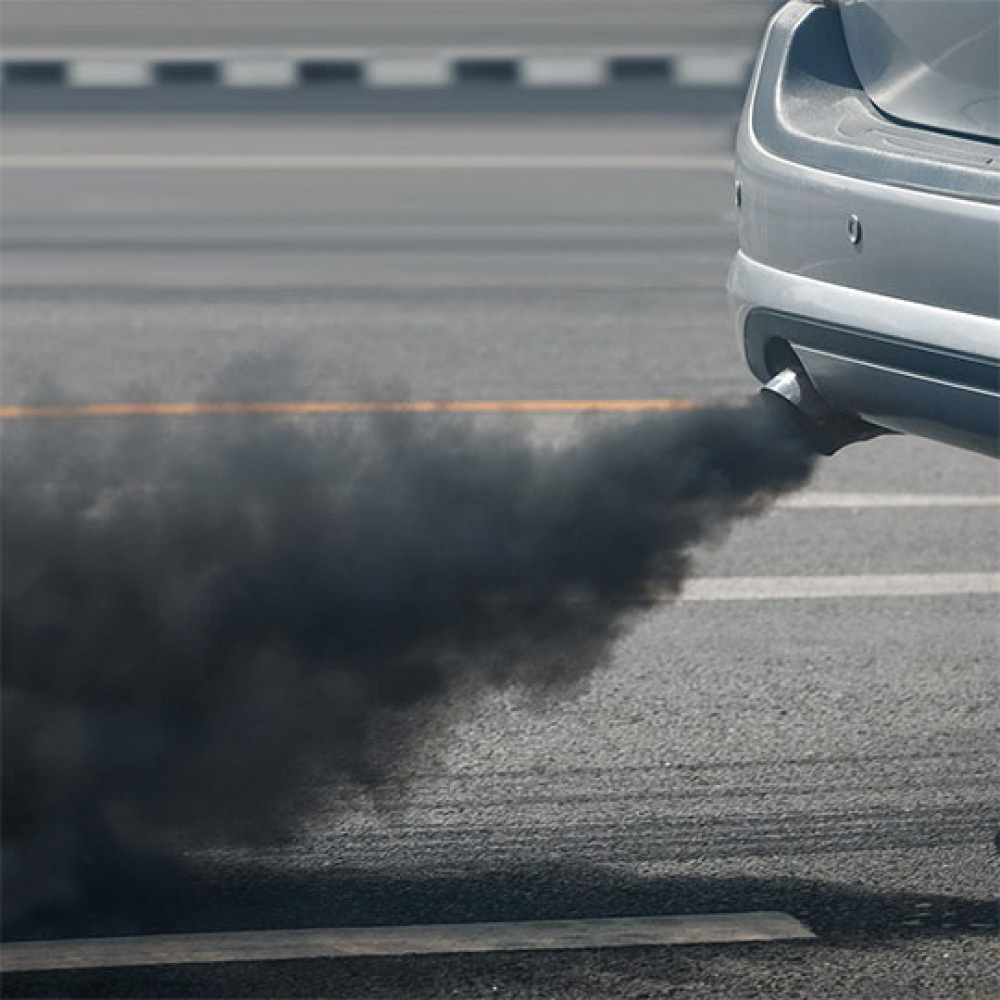Blog
What Does It Mean If the Exhaust Emits Black Smoke?

What Does it Mean When Exhaust Emits Black Smoke?
If your vehicle's exhaust pipe emits black smoke multiple times, it is necessary to have a mechanical inspection. Continuous emission of black smoke may indicate that the vehicle's engine is running with a rich mixture. If the engine runs with a rich mixture, it means there is more fuel than needed for combustion in the fuel tank.
In engines running with a rich mixture, injector problems often occur. In some cases, the reason for black smoke emission from the exhaust may be that the engine cannot draw enough oxygen. In both cases, there is an issue with the vehicle's engine. Therefore, it is important to have the vehicle checked to determine the cause of the problem. The inspection of the injection system and carbon cleaning may be required.
Meaning of Black Smoke from the Exhaust:
The clearest answer to this situation is a possible blockage in the engine's air filter. When there is not enough air, the engine is strained, resulting in the emission of black smoke. If the injection pressure is uneven, black smoke may also come out of the vehicle's exhaust. Too much or too little injection pressure can cause black smoke. If oil enters the gasoline, black smoke may also be observed. External factors, such as weather conditions, can also contribute to the emission of black smoke.
In cold weather, black smoke may be emitted when vehicles are started because the quality of fuel combustion is lower in cold temperatures. An EGR (Exhaust Gas Recirculation) malfunction can also cause black smoke emission, leading to uneven vehicle operation. It is important to seek technical support in such cases.
Why Does Black Smoke Come Out of the Exhaust?
There can be multiple reasons for black smoke coming out of the vehicle's exhaust. Black smoke, indicating poor fuel combustion, also suggests that there is insufficient air for fuel combustion. Drivers should check fuel injectors, air filters, and fuel pressure regulators first. If there is no problem with these components, it is necessary to check whether the EGR system is blocked. If the gas pedal is pressed excessively when starting the vehicle, excess fuel goes to the cylinder, causing black smoke emission.
Insufficient air inside leads to black smoke, indicating engine suffocation. This is considered a user error and can be considered normal. Another significant cause is a rich fuel mixture, where too much fuel is sent to the cylinders compared to the amount of air. The air mixture in the engine during winter months is usually higher, leading to increased black smoke density. Conversely, in summer, black smoke density increases.
User Errors Leading to Black Smoke from the Exhaust:
If black smoke comes out of the vehicle's exhaust, it may be due to user preferences or errors. If individuals use low-quality fuel, the sulfur content may be higher than normal, leading to black smoke emission. Regular maintenance or timely maintenance not performed on vehicles may result in frequent black smoke emission. In vehicles with neglected maintenance, black smoke is common due to a clogged air filter.
If the gas pedal is pressed excessively when starting the vehicle, an excess amount of fuel goes to the combustion chamber, causing black smoke. This situation is more related to the volume of fuel than the type of fuel. Therefore, it is essential to establish a balanced system when starting the vehicle.
Meaning of Colored Smoke Emitted from the Exhaust:
Vehicles do not emit only black or white smoke. It is also possible to observe different colored smoke emissions. Although many people think that white smoke comes from cold weather, it is not always the case. White smoke from a vehicle may indicate the evaporation of cooling fluid or leakage into the combustion chamber. This requires technical support to resolve.
Although blue smoke is not very common, if it happens, it may indicate that engine oil has entered the combustion chambers. In such cases, the vehicle may emit blue smoke while expelling excess oil. The meaning of gray smoke is usually related to the turbocharger burning oil. Checking for oil loss in the vehicle can help determine the cause of gray smoke.
Exhaust Water Dripping:
Exhaust water dripping is a common issue that drivers face. There can be multiple reasons for this, making it challenging to understand. In cold weather, exhaust pipes can become moist as hot gases exit the vehicle. This can cause water spraying or dripping from the exhaust when the vehicle is started. This situation is considered normal, and it does not indicate a malfunction.
After the vehicle continues running for a while, it adapts to the heat, and the water dripping issue resolves itself. Another reason could be a damaged cylinder head gasket, responsible for separating water and oil inside the engine. If this gasket is damaged, water and oil may mix. A decrease in water levels in the engine's antifreeze tank can also indicate a damaged gasket. Seeking technical support is necessary to resolve the issue.